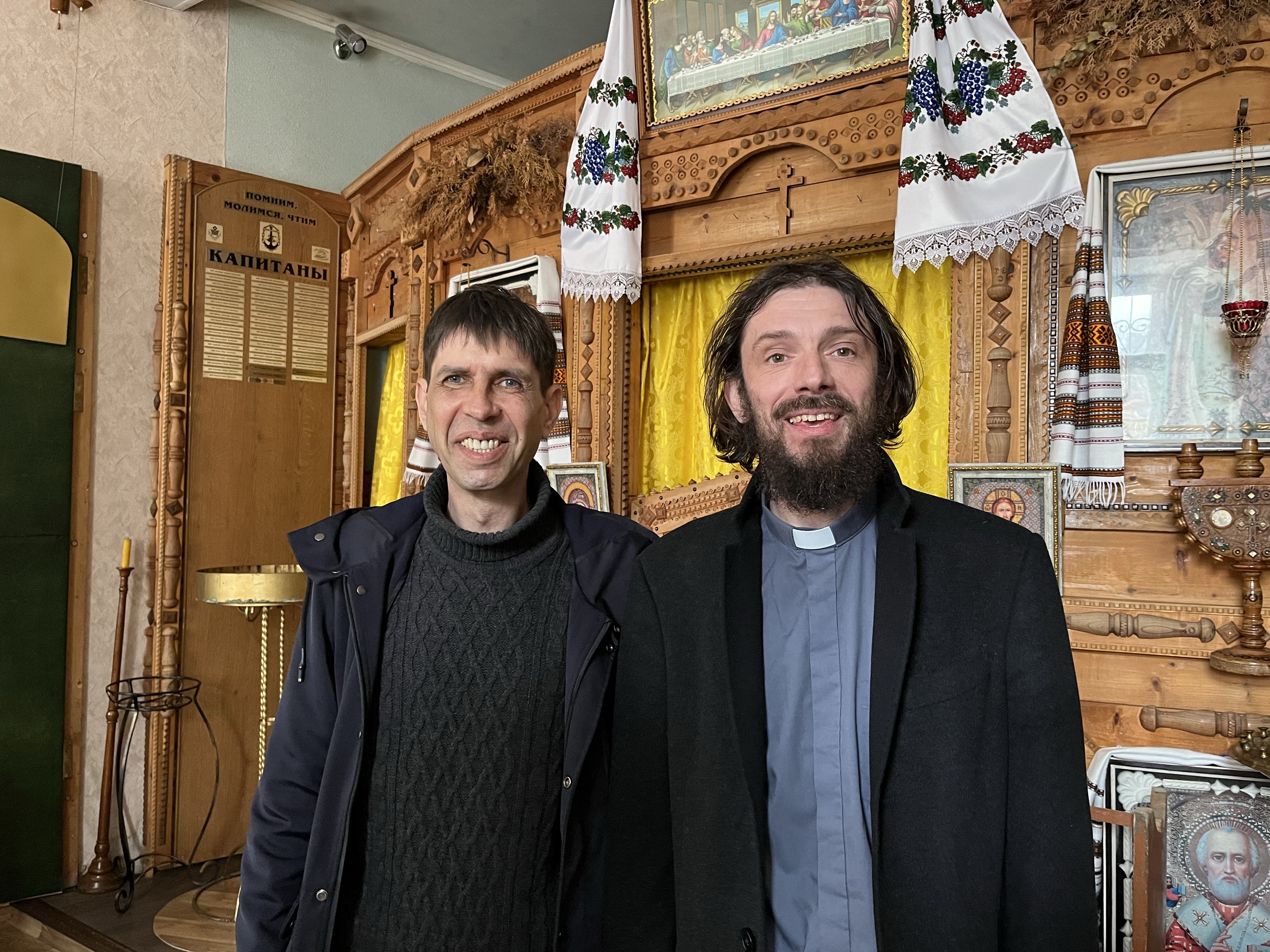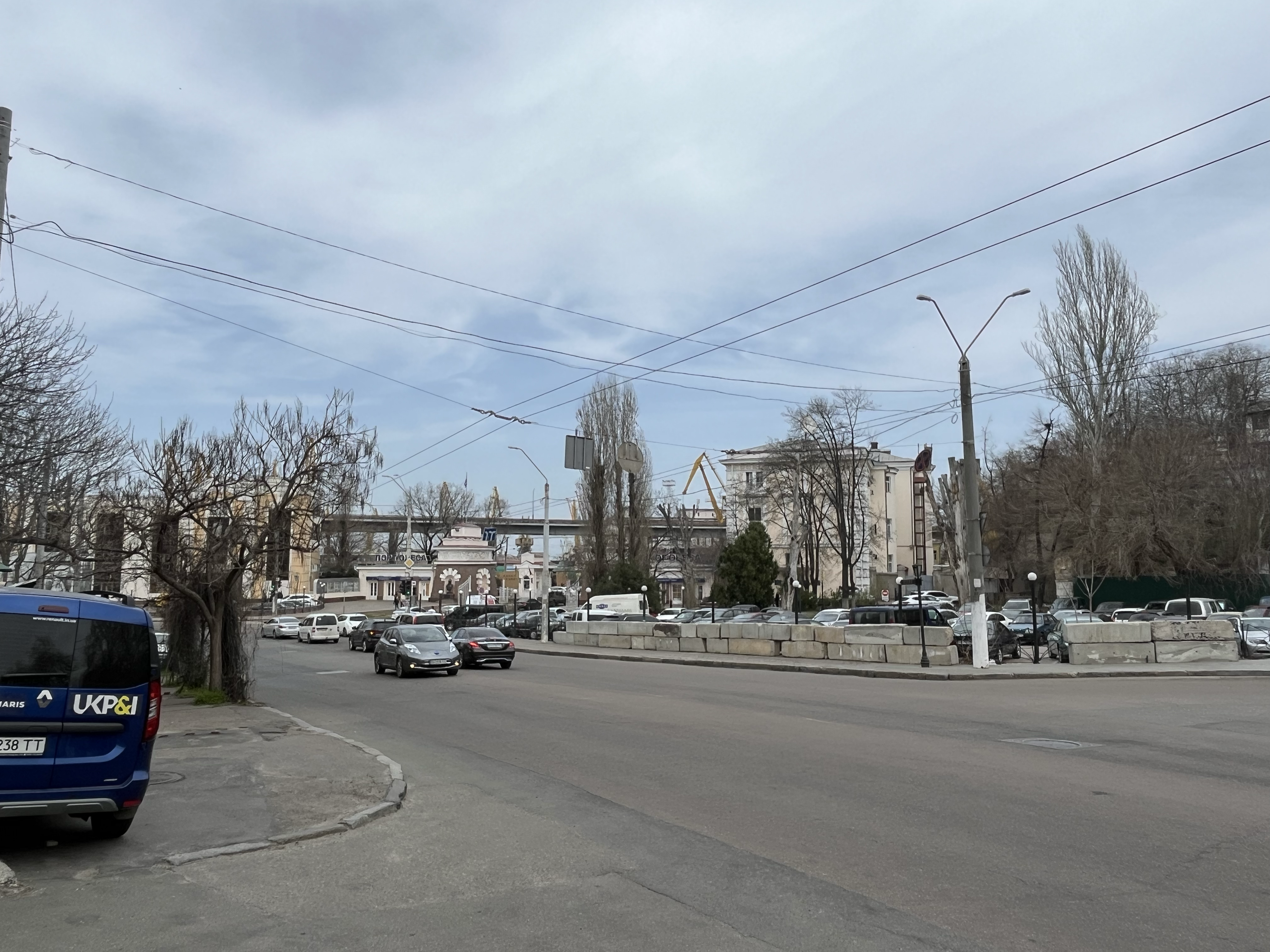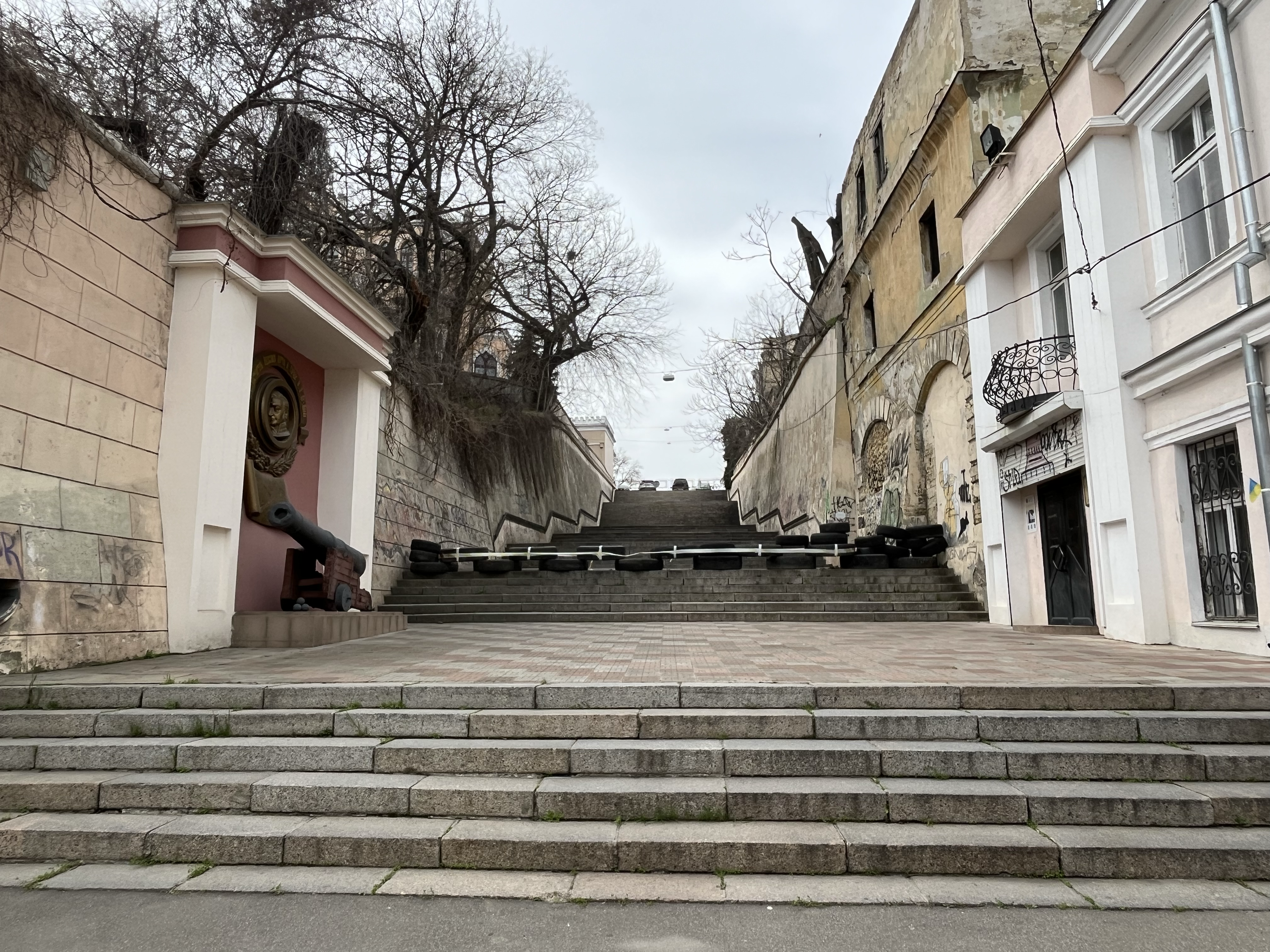Praying double
April 02, 2024
Tuesday, April 2
Odesa, Ukraine
Yesterday and today we are in Odesa, Ukraine, a port city on the Black Sea that withstands daily attacks from missiles and drones. (Parts of the city are known as “little Paris” because Catherine the Great invited French aristocrats to settle here when escaping the French revolution in the late 18th century.) As in every city we’ve visited, people here go about their daily lives, and I’ve spent the last week in awe of the resolve of the Ukrainians.
We’ve been learning a lot about the effects of internal displacement on education, health care and social services. Ukrainians, fleeing from towns and cities on the front line, struggle greatly. If the people are fortunate, they have family or friends who can give them a safe place to stay indefinitely. If they don’t have such resources, they must find a place to live. In both cases, the influx of internally displaced families and individuals creates a higher demand for public services. At the same time, jobs are somewhat limited. Most importantly, the emotional and mental experience of being a refugee in your own country and the stress of not knowing when it will all be over or how it will end, weighs greatly on the people.
To end our afternoon, we visited the Stella Maris Ukraine ministry, which is a few hundred meters from the port of Odesa. Their mission is seafarers and their families. They offer professional psychological support, food and ministry to Ukrainians – or anyone – on ships in the Black Sea.
Bruce, Christian, Monsignor Vitillo and I visited the Stella Maris chapel today and spoke with two of the chaplains. All the windows in their building, except for two, have been blown out by strikes since the war started, they regularly lose electricity, and their proximity to the port of Odesa means they are in constant danger of a missile destroying their building. Nevertheless, one of the chaplains commented that we are brave for visiting. His English is decipherable, but what made his communication most effective is his facial expression and knack for stressing just the right words.
When we told him that they, not us, are the brave ones for staying where they are to continue their ministry, they both reacted. They see this as life, as the opportunity to live their vocation to the fullest for God. “We have seen even more people who need help,” one chaplain said. “Yes,” the expressive chaplain added, leaning in for emphasis, “and when you in trouble, you pray double.”
We all had to laugh at his impeccable delivery of the line, but there is a lot of truth in that. The day can’t come fast enough for this war to be over, and Ukraine to be free, independent and at peace once again. Yet, the suffering of the nation is calling the citizens of Ukraine to care for each other in ways they may otherwise not have had the opportunity to do so. We’re also seeing people needing help and care who probably never dreamt they would. I’m thinking of these people the most, and the humility that must require.
At the root of care is human connection. Sometimes you are the person who has something to give; sometimes you’re the recipient. And if you’re like me, you find it harder to ask for help than to give it. The chaplains at Stella Maris are receiving their blessing – feeling fully alive – bravely giving themselves to continue their ministry even in the most dangerous time and place.
I am “praying double” that this war will be over soon, and when it’s my turn in life to both give and receive, I do so, with the same grace, courage and humor.



